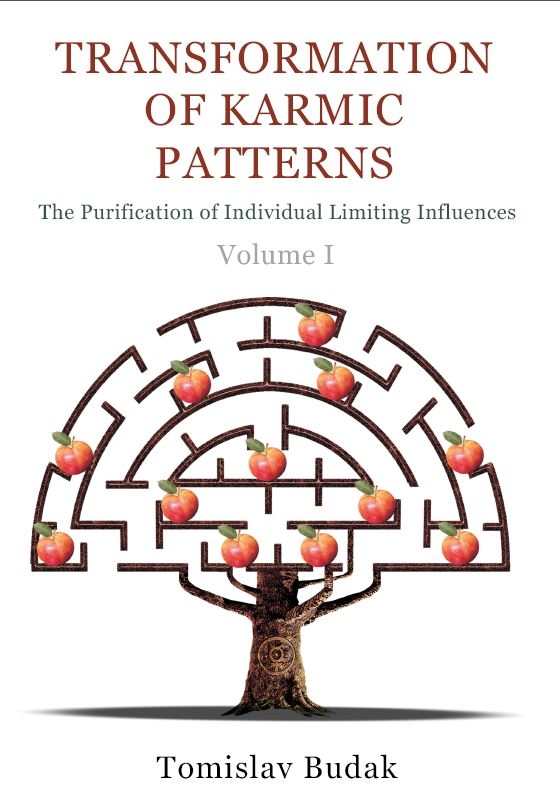Transformation of Karmic Patterns, Volume I
The Purification of Individual Limiting Influences
Straightforward and approachable, this book debunks the myth of instant karma in Western popular culture.
Many Westerners tend to either dismiss karma out-of-hand or use it casually to lend the weight of the ages to simplistic truisms such as “what goes around, comes around.” In Transformation of Karmic Patterns, Tomislav Budak examines karma as a means of explaining how individual and family dynamics and patterns of behavior shape the quality of existence.
Karma is often misperceived as a nebulous, uncontrollable system in which actions are linked to later rewards or punishments, transcending individuals, groups, and even lifespans. Yet Budak sees more concrete patterns—with ample opportunities for alteration, if the way the karmic system works is understood. This book functions as a guide to harness or alter already established karmic patterns in order to make life as pleasant, and worthwhile, as possible.
Chapter by chapter, Budak sets forth in a straightforward manner how to understand the karmic patterns that shape a person’s current state of being. In doing so, he compellingly addresses those who are skeptical of any mention of karmic forces, while also providing sufficient original insights for those already conversant with the theme. He then maps out paths for karmic self-development and growth that transcend this current state. He successfully clarifies these concepts by firmly anchoring the whole process within the discipline of psychotherapy.
Budak’s writing is detailed and lengthy, yet easy to follow. Those familiar with the major strands of psychotherapy will be reassured (and impressed) by how skillfully he connects and integrates the ideas of Jung and Freud with more ancient concepts of enlightenment.
The author feels that karma has been all too often presented in a manner that is counterintuitive to the Western mind—eschewing the linear conventions of post-Enlightenment narrative in favor of circular digressive patterns like meditative constant rereading, learning by lengthy absorption, and gradually incremental awareness. He contends that this approach has obscured a great deal of useful knowledge, or placed it within the reach solely of those with a great deal of time to immerse themselves in Eastern traditions of spirituality. Budak imparts many harsh words about the elitist condescension of contemporary New Age movements, seeing in them a spiritual velvet rope that seeks to exclude those who haven’t “put in the time” or are perhaps not “ready for the truth.”
Above all, Budak reiterates that karmic philosophy does not require a divestment of Western thought patterns. He successfully links ancient Eastern concepts to terms, constructs, and results that will appeal to and benefit the modern Western reader. His central goal is an inherently noble one—to unlock karmic philosophy so that readers of any nationality, spiritual belief system, or level of previous knowledge can gain practical insights from this time-honored approach to dealing with love, suffering, and the realization of our destiny.
Budak clearly illustrates these core concepts. His section on how early family dynamics influence later life is particularly illuminating. At the end of each chapter he recaps the key points in clear bullet points—an especially useful feature. Overall, the reading experience is refreshingly approachable. Readers may find much to gain from this encompassing yet accessible volume.
Reviewed by
Seamus Mullarkey
Disclosure: This article is not an endorsement, but a review. The publisher of this book provided free copies of the book and paid a small fee to have their book reviewed by a professional reviewer. Foreword Reviews and Clarion Reviews make no guarantee that the publisher will receive a positive review. Foreword Magazine, Inc. is disclosing this in accordance with the Federal Trade Commission’s 16 CFR, Part 255.

